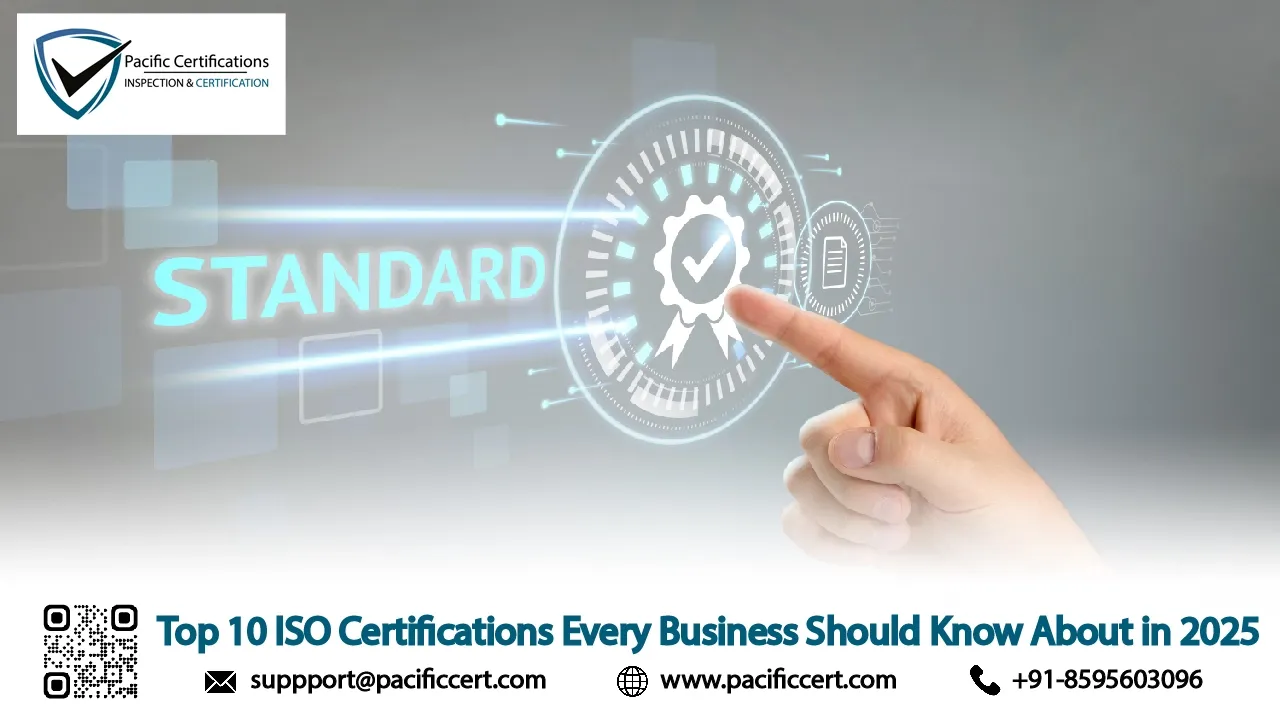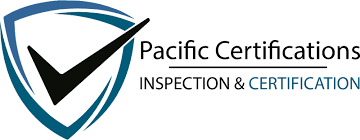Top 10 ISO Certifications Every Business Should Know About in 2025

In the recent years, ISO certifications are still essential tools for any business striving to improve its processes and improve its standing in industry standards. An ISO certification combines commitment to maintaining high quality in a range of areas of business operations-whether that means manufacturing, healthcare, IT, or any other industry! In this blog we will be investigate the 10 most important ISO certifications for any business along with their respective benefits for organizations big and small.
For assistance, contact us at [email protected].
Introduction
The International Organization for Standardization (ISO) establishes global standards. Organizations can utilize these standards to improve the quality, efficiency, safety and/or sustainability of their business. An ISO certification signifies that your company practices operational excellence, and thus can create an environment of trust among your customers, partners, and other stakeholders. Organizations have gained a competitive advantage, developed from risk management capabilities, and ensured manageable operations on every level through the standards. As industry standards change and grow, ISO certification has the potential to become a unique selling proposition that sets you apart from the volume of organizations.

ISO 9001:2015 Quality Management Systems (QMS)
Among the most accepted standards on a global scale, ISO 9001 pertains to better quality management in an organization at a general level. This certification guarantees that a company keeps producing goods and services that fulfil customer requirements and comply with regulatory stipulations.
Some of the main benefits are product and service quality improvements, customer satisfaction through consistent performance, and operational efficiency and waste reduction.
Industry Use Cases:
- Ensuring product consistency and reduction of production errors.
- Standardizing service delivery as well as enhancing customer experience.
ISO 14001:2015 Environmental Management Systems (EMS)
ISO 14001 is designed to assist organizations in managing their environmental responsibilities in an organized way. The standard urges businesses to reduce environmental footprints, comply with relevant regulations and take sustainability into account while conducting their business.
Industry Use Cases:
- Reducing environmental consequences of construction activities.
- Using green practices in sourcing and supply chain management.
ISO/IEC 27001: Information Security Management Systems (ISMS)
ISO/IEC 27001 is a truly global standard for information security management. It allows organizations to protect sensitive information, reduce security threats, and ensure that their IT infrastructure is safe from hazards and vulnerabilities.
Key benefits include Improved data protection and compliance with privacy; lowered risks of cyberattacks and data breaches; higher reputation among customers showing their commitment to data security.
Industry Use Cases:
- Protecting the software applications and IT infrastructure.
- Protecting patient-related information and ensuring compatibility with privacy laws like HIPAA.
Ready to improve your quality management system? Contact Pacific Certifications to begin your ISO 27001 journey.
ISO 45001: Occupational Health and Safety Management Systems (OH&S)
ISO 45001 centres around creating an environment that is both safe and healthy, where hazards are identified, risks are assessed, and measures put in place to prevent accidents and injuries. This certification allows organizations to implement systematic health and safety management practices.
Industry Use Cases:
- Handling risks associated with heavy machinery and production lines.
- Controlling risks to worker safety on job sites.
ISO 50001: Energy Management Systems (EMS)
ISO 50001 provides a framework for an organization to manage and optimize energy consumption. This certification supports organizations in improving energy performance, reducing costs related to energy consumption and increasing environmental sustainability.
Key Benefits include Reduction in energy consumption and cost, Improved environmental performance, and Compliance with energy and environmental sustainability regulatory requirements.
Industry Use Cases:
- Optimizing energy consumption in a production facility.
- Managing energy efficiency in a corporate office.
ISO 22000: Food Safety Management Systems (FSMS)
ISO 22000 provides a food safety management system (FSMS) to control food safety hazards associated with foods throughout the entire food chain - from production to consumption. Food safety has become critical in the food industry to minimize contamination and to ensure food products are compliant with food safety regulatory requirements.
Industry Use Cases:
- Maintaining safety and hygiene in food production.
- Implementing and maintaining safe food handling procedures in food service situations.
ISO 22301: Business Continuity Management Systems (BCMS)
ISO 22301 helps organizations prepare for and respond to disruptions to ensure that critical functions are maintained during an emergency. This certification focuses on building resilience and reducing the effects of crises on business functions.
Key Benefits include: Ensures continuity of critical business functions in times of crisis, Reduces the financial and operational impacts of disruptions, and Use a holistic approach to build resilience and strengthen risk management.
Industry Use Cases:
- Maintain service levels during a financial crisis or cyber attack.
- Maintain operations during natural disasters or pandemic situations.
Ready to improve your quality management system? Contact Pacific Certifications to begin your ISO 22301 journey.
ISO 13485: Medical Devices Quality Management Systems
ISO 13485 is a certification geared toward organizations that produce medical devices. The certification will ensure that medical devices comply with regulatory requirements and are safe for the consumer.
Key Benefits include: Ensures product safety and compliance with regulatory requirements, Reduces the risk of defects or recalls, and Builds trust in your product's quality and safety with consumers.
ISO 31000: Risk Management
ISO 31000 provides a structured approach to managing risks in all areas of an organisation. This standard enables businesses to identify, assess and manage risks thereby, promoting informed decisions and building resilience.
Key Benefits include that it identifies and manages operational and strategic risks, promotes a proactive approach to risk management and helps to improve decision making through risk assessment.
Industry Use Cases:
- Managing financial risks and ensuring investments are secure.
- Identify operational risks and develop mitigation processes.
ISO 26000: Social Responsibility
ISO 26000 provides guidance to organisations on implementing social responsibility within their day-to-day operations. It covers a variety of topics broadly related to social responsibility, such as human rights, labour practices, environment, and ethics in business.
Key Benefits include that it promotes corporate social responsibility (CSR), creates a positive impression of your organisation which is developed by the demonstration of commitment to ethical practices and promotes sustainability through responsible business operations.
Industry Use Cases:
- Ensure ethical sourcing is achieved and labour practices are acceptable within supply chains.
- Promote diversity and inclusion within your workplace.
Conclusion
ISO certification provides a way for organizations to systematize their operations, with improved operational performance and increased ability to fulfil compliance obligations. In all sectors, whether it is manufacturing, healthcare, food safety management, or information security. ISO certification provides a way to profit your operations, increasing efficiency and brand image, all while fostering trust with customers and stakeholders.
Contact Us
Pacific Certifications is here to guide your organization through the ISO certification process. Whether you are looking to implement ISO standards for the first time or need assistance in maintaining certification, our team of experts is here to support you every step of the way.
Ready to get ISO certified?
Contact Pacific Certifications to begin your certification journey today!
Suggested Certifications –
Read more: Pacific Blogs

